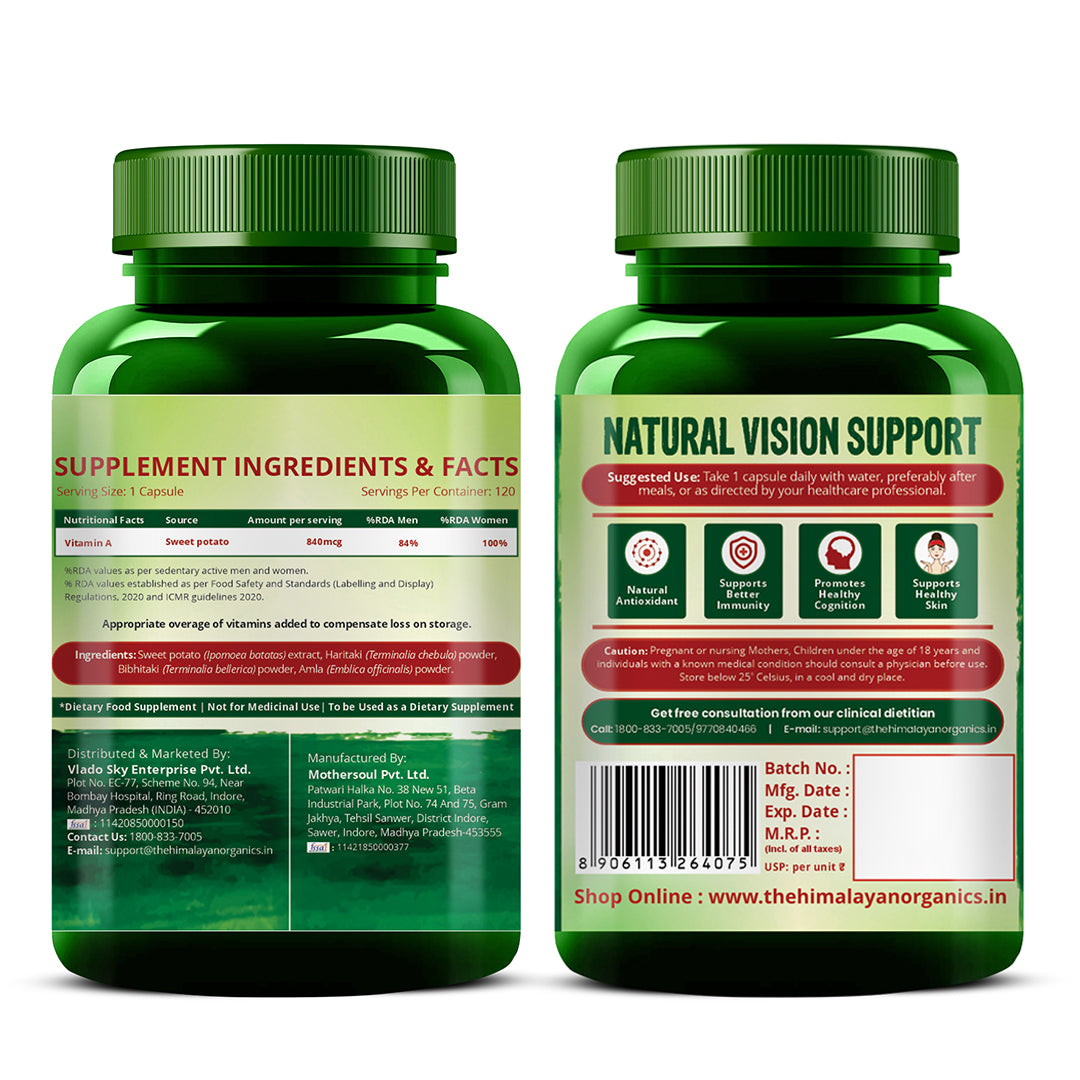







Description
Vitamin A is an essential nutrient that plays a key role in maintaining good health. It is a fat-soluble vitamin that is stored in the liver. It is also known as Retinol because it produces the pigments in the retina of the eye.
Sources of Vitamin A
-
Dairy products such as cheese, yogurt, and fortified milk (choose non-fat and low-fat dairy options)
-
Orange and yellow vegetables and fruits, such as carrots, sweet potatoes, mangos, and cantaloupe
-
Broccoli, spinach, and most dark green, leafy vegetables
-
Yellow fruits, such as mango, papaya and apricots
Functions of Vitamin A:
-
Vision: Vitamin A is crucial for maintaining healthy vision, especially in low light. It helps form a pigment called rhodopsin in the retina, which is necessary for night vision.
-
Immune System: It supports the immune system, helping the body fight infections.
-
Skin Health: Vitamin A promotes healthy skin by helping cells grow and repair. It’s also used in treating acne and other skin conditions.
-
Cell Growth and Reproduction: It helps with the growth of cells and supports reproductive health.
-
Bone Health: It plays a role in the development and maintenance of bones.
Deficiency
-
Lack of vitamin A can lead to vision problems like night blindness and dryness of the eyes.
-
Its deficiency weakens the body’s ability to fight off infections. This can lead to a higher risk of respiratory infections, diarrhea, and other illnesses.








